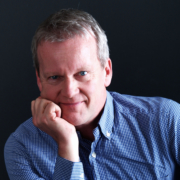Andrew Skourdoumbis & Emma Rowe
“What Works”, Neuroscience, and Initial Teacher Education
Today we explore the rise of neuroscience in initial teacher education in Australia. My guests are Andrew Skourdoumbis and Emma Rowe. Andrew Skourdoumbis is an associate professor in education at Deakin University where Emma Rowe is a Senior Lecturer. Their new co-written article is “A critique of ‘Strong Beginnings’ initial teacher education reforms: mandating neuroscience as core curriculum within the ‘what works’ movement”, which was published in the Australian Educational Researcher.
Citation: Skourdoumbis, Andrew, Rowe, Emma with Will Brehm, FreshEd, 365, podcast audio, August 26, 2024. https://freshedpodcast.com/skourdoumbis-rowe/
Will Brehm 1:17
Andrew Skourdoumbis and Emma Rowe, welcome to FreshEd.
Andrew Skourdoumbis 2:25
Thank you, Will.
Emma Rowe 2:26
It’s great to be here. Thanks, Will.
Will Brehm 2:27
Congratulations on your new article. I absolutely loved it, and I’ve actually started sharing it with a whole bunch of people, because it’s really quite timely, particularly here in Australia. But I think actually might say some things more broadly as well. So, let’s start with this big crisis that you hear about in Australia all the time around this teacher shortage affecting school systems across the country. So, based on the research that you’ve explored that really look at teacher perspectives, why is there a teacher shortage? What do we know based on the research literature?
Andrew Skourdoumbis 2:57
I think what we can safely say -most teachers, in terms of the research, and what they’re saying, and researchers are saying around the shortage- is that workload is probably the number one issue that teachers are currently facing here in Australia, at least, around teaching. And so, that’s probably the biggest factor or influence around teacher shortage, and so, difficult working environments, which incorporates pressures of student needs, societal expectations now have probably increased in recent years, teachers not feeling appreciated. I think despite evidence to suggest that the public certainly probably respects teachers more say in the last 10 or so years. Definitely again, I think the underpayment issue of teachers is sort of linked to this as well. More demanding and perhaps aggressive parents seems to be an issue of late, I would argue. The administrative expectations seem to be now more significant and have exacerbated in recent years -that’s what teachers seem to be saying. And teachers’ concerns about their own health, welfare and wellbeing seems to also be an issue.
Will Brehm 4:06
And that’s pretty established in research in Australia?
Andrew Skourdoumbis 4:10
Yeah, I think so. Definitely in recent years, I think we’ve had some research out of Monash in the last couple of years. I think it was a report written a couple of years ago, and I think it was called “Perceptions of Teachers and Teaching in Australia” that certainly attests to that. And there’s been other research as well in recent years that attest to this. But it’s not just recent research, I think this also goes back, certainly in Australia, people like Stephen Dinham and others have written about this over a few decades in terms of around, say, not just teacher shortage, but issues around teacher attrition as well. So, they also point to some similar things and pressures that teachers experience in terms of leaving the profession. So, I guess whilst there’s not necessarily, maybe nothing new as such, perhaps what is new is how now, teachers are really voicing their concerns about some of those things I mentioned earlier. Definitely, workload is a big issue. And maybe one other difference, perhaps, is that maybe I’d probably also venture to say this, that perhaps teachers, maybe more so than ever now certainly say in public schools, are perhaps less prepared to what I would say, “grit it out” than what they may have been in the past.
Will Brehm 5:24
So, how is the Australian Government responding to this challenge of a teacher shortage, of the workload, everything that you’ve just explained, Andrew, all of these pressures that are being put on sort of new teachers, but also teachers that potentially burn out and don’t continue with the profession, hence creating this shortage? How is the government responding?
Andrew Skourdoumbis 5:46
Well, what I would argue, I think I’d say at the very outset, they’re responding by seeking to impose what I would call a techno-rationalist, scientific fix to things. And I think we’re seeing that now in the ‘Strong Beginnings’ response, where they’re seeking to mandate core content for most of which is now -what I would say is- the imposition or the entree of neuroscience or brain science. That’s how I see it. And so, I think linked to that, then is, I think government seeking to change teacher education saying the problem here around teacher shortage is a problem of teacher preparation. And so, ITE is to blame. So, in short, teachers are ill prepared for the classroom environment these days, so we need to change teacher education.
Emma Rowe 6:39
I agree with what Andrew saying. There’s nothing that I’ve disagreed with there. You know, the AITSL (Australian Institute for Teaching and School Leadership) survey actually showed -so, AITSL carried it out and surveyed -it was a huge number of teachers. I think it’s one of the biggest surveys that gets carried out- and one in four teachers intended to leave, which is a huge proportion of teachers that were intending to leave, and they were citing excessive workloads. So, just adding on to what Andrew is saying that, yeah, definitely, the actual quote from a survey, which I highlighted, when I looked at it, was quote, “the workload is too heavy”. You know, that was 71% who said the workload is too heavy. So, it’s not actually a mystery. Sometimes it’s sort of positioned as, oh, it’s a big mystery. Why are they leaving? Oh, you know, but it’s like teachers are telling us why they’re leaving. There’s no mystery around it. We have actually the data as to why they’re leaving. It’s just that the government, they’re not listening to teachers. So, teachers are saying, this is why we’re leaving, and then, you know, they’re voting with their feet, is what I think it is. If you’re not going to listen, I’m going to vote with my feet and walk away. And the governments are not listening. And these reforms do not show any listening, any response, any careful, thoughtful response to what teachers are telling us.
Will Brehm 7:56
So, the latest policy reform for ITE, is this policy document that Andrew brought up called Strong Beginnings. Now are you saying that in Strong Beginnings, they don’t address workload? They don’t say that we have to think about teacher workload as contributing to this issue of teacher shortage.
Andrew Skourdoumbis 8:16
I think Emma and I would say it’s not addressed at all in that report Strong Beginnings and in fact, it comes back to something I said a moment ago, where I think what Strong Beginnings does, or what the government is seeking to do in terms of trying to fix this teacher shortage, is impose, again, what we suggest is a techno-rational, scientific approach to now teacher education. And so, I think the suggestion is that we need to change, certainly, the ITE curriculum. And so, there’s that notion of core content, and that core content in the Strong Beginnings Report is made up of three or four areas -I’ve mentioned one, the neuroscience or brain science area, curriculum, effective pedagogical practices and classroom management. And I think the other thing that I’d probably add to this as well, in terms of how I think the government is thinking about a teacher shortage, it sort of also, I think, lets a government off the hook a bit. It’s trying to abide by, I think, or funneling, maybe resourcing, you could argue, away from perhaps the sociological kind of ways of trying to treat this issue, or problem of teacher shortages. And so, it’s probably not interested in working on those broader, maybe one could say harder, political, social, economic, cultural aspects of how society, the economy is organized. But it’s more interested in trying to, let’s fix ITE, because the problem is there. So, I see strong beginnings as a bit of a distractor there, getting us talking about these techno-rational, scientific fixes, as opposed to looking at some of these other maybe more difficult for want of a better way of putting it, sociological, political, economic, kind of issues.
So, let’s dive into brain science, or neuroscience, because it seems a bit unusual to be connecting neuroscience to ITE. So, how is Strong Beginnings, how is the government positioning neuroscience as a major area that ITE needs to reform, to embrace more fully.
Well, I think we all know that the brain has some connection to how we learn, so I don’t think we really needed Strong Beginnings to tell us that. But I think what certainly Emma and I are arguing in our paper is that I think Strong Beginnings is making that connection very explicit, and it’s basically suggesting that there’s now this evidence base, if you like, between neuroscience and educational practices, and that there are certain classroom teaching practices that teachers need to use and need to know about that are supposedly proven and have been shown to work in inverted commas, and that teachers need to not just know about them, but they need to actually demonstrate them and use them in classrooms. So, I think the key thing now about neuroscience and its relationship to learning is that neuroscience is presented as a specific type of evidence base for educational practice, and that now we need this mandated in ITE. So, I think that’s the major difference here. And so, I see it as a type of imposition of the so-called hard sciences, if you like, or an element of the hard sciences into education policy, in particular, ITE policy and also the classroom. I think that’s how I will put it.
Will Brehm 11:43
And Emma, do you see this sort of imposition of neuroscience into education as being value free? Like, should we just sort of look at this evidence base and say, okay, great, now let’s follow this evidence base, because this is what works?
Emma Rowe 11:57
I absolutely see it as the opposite of value free. I actually think it is incredibly laden with values. It’s so heavy, so heavy with values, that it’s almost falling over. But, you know, I guess part of the problem is that it does present -it does sort of push that it’s value free. It’s a silver bullet solution, or a turnkey solution. This is something that’s really easy, that we can just implement, and it’s a very narrow approach. So, I really think it is the opposite of value free. And I think we should be really scared when they start telling us that it’s value free. In fact, I think that’s when our red flag should sort of go, oh, okay, you know, it’s the same when, you know, Center for Independent Studies says to us that funding doesn’t really matter. It doesn’t really make that big of a difference. Money doesn’t really matter. You know, our red flag should be going up to those sorts of arguments, because, yeah, it’s obviously the opposite scenario.
Will Brehm 12:57
So, what values would you see then? What are the values that you think are either implicit or potentially even explicit in the evidence based around the connection between neuroscience and learning.
Emma Rowe 13:10
Yeah. I mean the Strong Beginnings report interestingly, it doesn’t actually use the term. It never uses the term neuroscience. It makes a few emissions so it doesn’t use the term neuroscience, but it uses brain-based approaches, and in our paper, we use the term neuroscience, and we explain why we do but the Strong Beginnings does draw on the OECD 2002 report, ‘Understanding the Brain’, but then it doesn’t draw on the latter 2007, which you think it would draw on the more current, more recent report, wouldn’t you? But it draws on the 2002 and it actually includes the OECD 2002 in the key references as well. So, it’s sort of seen as a really important report in the Strong Beginnings, although you know that to me, is quite an omission as well, because the OECD 2002 report has all these limitations and caveats around brain-based approaches. You know, if you read it in full, it’s really careful in the way that it puts forward brain-based approaches. And it even says that one of its biggest advocates, [Judson] Brewer, I think I’ve got the name right there, but it said that one of the biggest advocates have actually become one of the strongest critics of brain-based approaches to education. So, all these sorts of limitations that the OECD report puts out, the Strong Beginnings report does not issue any, not one -correct me if I’m wrong, Andrew, but it doesn’t issue any limitations or anything we should be careful about when it comes to brain based approaches, and that, you know, really is a concern when brain based approaches are drawing from, or influenced by, or taking on the messaging system, arguably, of newer reasoning and very much informed and maybe I should be more tentative there, but informed by neuro reasoning. It has that influence that we’re thinking about we’re making reasoning or where we’re making decisions, judgments, comparisons, as based on someone’s brain, whether you’re a primary or a secondary, or schemas, mental models, schemas. So, I’d really think that positioning a brain of a novice versus the brain of an expert, we should be cautious, really cautious about that kind of language and what the invisible tropes of that language are as well. What’s creeping in to our thinking and our judgment about people, about learners, about students?
Will Brehm 15:41
What do you think is creeping in if you use that sort of neuro reasoning, logic or discourse?
Andrew Skourdoumbis 15:48
I think part of what’s being done here via the Strong Beginnings is -adding to what you were saying about the neuroscience, etc.- is that it tries to sort of portray itself as this pure scientism. It’s pure science, you know, we’re trying to capture this knowledge that’s out there that we may not even know yet about the brain, and we’re discovering all these things, how it works, but then it’s suggesting that we can then somehow box this, or border it, etc., and we can apply it and put it within classrooms and somehow or other, that’s how, you know, advances will be made to students learning, and then we all progress as a society, etc., etc. And look, so to me, there’s a veneer of this scientific purity attached to it, you know. And it might be appealing to some teachers as well, particularly stressed teachers who are dealing with all these things all the time, and in the context of a teacher shortage, look, just give me something to do quickly, to do whatever I have to with my year nines, and categorize students in particular simplistic kinds of categories. So, it may appeal. It has this kind of simplistic appeal, but I think we know, certainly, those of us who’ve been teachers and those of us who’ve researched education, etc., we know that this is not, that things are more complex than that. That’s what I’d say. And really, it’s, if anything, to come to your question specifically, Will, I think there is an element of determinism behind it. I don’t see how it can get around that quite frankly, I just don’t see how it can get around that.
Will Brehm 17:19
And determinism here, meaning that the way one’s brain functions can determine how intelligent you might be?
Andrew Skourdoumbis 17:28
Correct. But look exactly, if we take it to a bit of an even further extreme, you know, there’s a genetic component here. And so, we could sort of this is Person X will be like this, and Person Y would be like this. And so, that other question of, well, what about the sociology? What about other influences here? Well, let’s not worry about those. They don’t matter. The science is telling us this is what really matters, and this is the only thing that matters. Now I fundamentally don’t agree with that. I think there’s enough research as well out there, after decades, that I think, you know, supports whatever we are saying essentially about Strong Beginnings in the neuroscience area.
Will Brehm 18:06
And it harks back to a pretty terrible past for science with the idea that you can rank people by IQ, and you can find differences in race, and eugenics is the term you bring up in your paper, but you can see how this would maybe be some of these ideas, but just spoken about in different terms.
Andrew Skourdoumbis 18:24
Exactly. I totally agree. I think that that’s what I certainly -like if taken to its extremes, if you like, but maybe not even its extremes. But that’s definitely what I would argue this sort of science leads to, is connected to, at least. Again, I don’t see how it can be separated from that quite frankly. I personally can’t see how it can be separated from that.
Emma Rowe 18:46
Yeah, I mean, I think we argued that it can generate oppressive technologies in the paper. That’s what we said, and that it’s potentially deficit setting. You have the brain of a novice versus the brain of an expert. They’re quite fixed cognitive positions. The way that I’m reading. it is it sounds quite you know that it’s stable, you’re fixed, you’re an expert. It reminds me of -I read in another report where it said that low SES students are lacking in the growth mindset. So, if you’re from a low SES background, the student over the top, you won’t have growth mindset. It is crazy stuff. You know, if you’re from a particular background, then you’re going to be lacking in this particular area. You know, we hear this from the disciplinary Tom Bennett as well, that, you know, people from a particular background, poor ,disadvantaged backgrounds are not going to be disciplined as much. I mean, these are really deficit setting around disadvantaged students, that is a real concern. And you brought up the historical aspect, and I think that is really important to actually remember the history of neuro reasoning. Some people might say that we’re taking it too far. But I definitely think that we need to always be talking about our history and all these damaging, really shameful ways that we leveraged neuro reasoning. And, you know, we all know about the history of eugenics in our universities as well. So, eugenics was considered, you know, really positively. It was considered the highest intellectual ranking. You know, you got awards. We really ranked it. And we come from a really shameful history of your stolen generation in Australia. And, you know, obviously neuro reasoning was a big part of that, and it was a very accepted part as well. So, that was actually a culturally accepted way of grouping a particular group of people. And now we think of that, and we think, oh, gosh, you know, so shameful. We’re all on board with how shameful that is, but back then, it was in the newspapers in terms of this -Will, I think the point I’m trying to make is that it was very culturally acceptable. It wasn’t questioned. So, you know, where are we now in terms of we’re seeing similar levels of incremental creep, or what David Gillborne might see potentially ‘invisible racisms’ as well, harder to see. It’s obviously no one wants to be seen as a racist these days. So, you know, David Gillborne argues that we hide it more within deficit setting reforms. And you know, I would agree. I think we tend to hide it or be in denial of it. And I think there’s some real concerns about how these reforms mobilize deficit setting and potentially quite oppressive technologies for our students, and potentially our most disadvantaged students, who, as well, we might not have, you know, the same amount of leverage that someone with more resources would have. You know, they don’t have the parent who might charge into school and say, Hey, you’re not doing that test on my kid. There’s no way you’re doing that test. So, you know, what are we putting in place here? That I think deserves a conversation, and, you know, a frank conversation about where we’ve come from as well. Obviously, none of us want to return there, do we?
Will Brehm 18:56
You know, speaking from the Australian Capital Territory, they are undergoing a major reform to do exactly what Andrew is saying; to identify very sort of explicit teaching models and approaches as the only thing that should be done inside schools. And so, it’s exactly what you’re saying.
Andrew Skourdoumbis 22:30
Well, I was just going to say, Emma and I are not against, you know, explicit teaching or direct instruction when it’s needed, but we know that -well, hang on, that’s not just the only way teachers should go about teaching. We know it’s needed. It’s part of the teaching repertoire, but there are also all these other approaches. And so, what are we sort of saying here, that, you know, working class children should only be exposed to direct instruction or explicit teaching because they really need it more. What about inquiry-based learning? I’m sure that the middle classes and the other elite classes are getting a lot of that kind of inquiry based more holistic approach to learning, so on and so forth. But what does it also mean about teacher agency and teachers themselves making decisions about the students they’ve got sitting in front or that they meet every day, and the decisions that teacher practitioners need to be making about the students and the needs that they recognize in their students that they need to try and meet. So, I don’t think it’s just this one size fits all direct instruction. You know, we’ve always been told in the last couple of decades about creativity, innovation, etc., in terms of ed policy and all the rest of it, in terms of our industry policy, etc., is direct instruction really all that innovative? I’m not quite sure.
Emma Rowe 23:45
Well, it’s packaged Andrew. It’s packaged and sold that way. So, I think you’re supposed to be convinced that it is.
Will Brehm 23:51
And maybe this brings up, sort of the next point is, sort of, who’s doing this packaging, right? Why is it that this particular approach of neuroscience, neuro reasoning, vis a vis learning, is so popular, is the zeitgeist, is seen as the thing that works for education policy or for education practice. Who are the actors pushing this particular agenda? That’s what blows my mind, and more than that, why are they doing it? Like what are they thinking they’re going to gain from this particular agenda, these values that they want to push into education policy?
Emma Rowe 24:28
I will respond to you Will, I’ll just add on as well. I think it’s in connection to what you asked that we were talking about inquiry-based approaches, and in Strong Beginnings one of the key references is ‘Why Inquiry Based Approaches Harm Students’ Learning’. So, that’s the title of it, and that’s by John Sweller, a highly respected psychologist, of course. But the text itself was commissioned by the Center for Independent Studies. So, they paid for that, and that is now embedded within the curriculum, within ITE. So, paid for by a think tank that doesn’t make its financials visible to the public. So, in answer to your questions, you know, the actors that are pushing it, we really get an insight into that when reading the Strong Beginnings, I feel the network really takes shape for us. You know, we see who the strong voices are, and the Australian Education Research Organization, or AERO for short, they were very influential in advancing the brain and learning reform agenda. And it actually says this in the report, doesn’t it, Andrew, that I thought that was a really interesting quote that the report makes, is that the Australian Education Research Organization pushed for a more authoritarian take up of the brain based and learning, and I haven’t quoted it directly there, because I haven’t remembered the exact quote, but I remember the word authoritative. So, it was that AERO has pushed for a more authoritative take up of the brain based in learning, and if we don’t take this up, there will be punitive outcomes. Basically, you won’t get mandated, or you won’t get accredited, I should say. So, you’ll lose your accreditation. And the panel made sure this was in the report. I think there must have been disagreements on the panel about these authoritative -you know, authoritative itself is probably a bit of a negative word because it carries these questions around agency that Andrew was talking about. Agency and autonomy of initial teacher educators as well. So, we have, kind of our first actor there. Our first actor in pushing this agenda is AERO, but AERO is like one little node within, I’d say, you know, a very vast global network that’s pushing it. And I’d say the Education Endowment Foundation is very significant, you know, to the point that I would argue that AERO is clearly linked to EEF, or Education Endowment Foundation. AERO was set up shortly after EEF said, Hey, we want to set up some global organizations, you know, Social Ventures Australia, which is our peak venture philanthropic organization in Australia -very influential- you know, they were at the table in sort of this network as well. So, I guess what we’re seeing is, you know, potentially a profit-making network. Profit making in public education, and far more profit-making agendas. Because if you package these things up and sell them to teachers, it’s a great way to make money. And I don’t think we’re new in making this argument at all, you know, it’s a lot in the literature that these approaches can be seen as turnkey solutions or, you know, profit making, because it’s a really neat way of selling a particular product a teacher is going to need to assess their student. So, you know, I think we see a really big hub in the Education Endowment Foundation pushing the ‘what works’ agenda. And then the mouthpiece in Australia is AERO and I think it’s important that we don’t see these organizations as neutral. So, you know, they’re neutral, government backed. They are government backed, but they’re also private backed. So, EEF has loads of private backers from corporate interests. So, you know, fossil fuels, for example, BHP (Broken Hill Propriety Company) is one of the big funders of EEF. So, you know, why would BHP be interested in funding an education foundation? Is it because they’re altruistic? Of course not. We know that these things don’t work because they’re altruistic. You know, I might be speaking out of turn here, but I would definitely question the altruism of these organizations in getting involved in education, and they typically target -like in Australia, for example- they target the most disadvantaged public schools, as well, to try out their, you know, quote, experiments. But I definitely say it’s a profit-making network.
Will Brehm 29:06
I mean, one of the things to follow up on that is, you know, I understand the profit-making side of it within all of these sort of public-private partnership organizations and networks that get created and different actors involved that might want to, you know, earn a profit through the public purse -very sort of common strategy, as you said. But it sort of doesn’t say much about neuroscience. Is the neuroscience part more about linking to this natural science as like a form of legitimation for the approach that they’re then trying to sell? Is that kind of the idea?
Emma Rowe 29:36
Yeah. I mean, why have they chosen neuroscience, you know, as an approach? I think, possibly for a few reasons. You know, it’s a really neat way to package yourself as ideologically free. And these organizations, one of the key things they like to put out there is that they are ideologically free. If you look on any of their websites, they will say they are apolitical, they are bipartisan, they work with everyone, they do not carry an agenda other than getting evidence based into our schools, you know? And that is a great pitch. That is a quite convincing pitch, isn’t it? I’m on board. You do not have a political faction. You’re just there for depoliticizing education, making it really neutral. We’re all on board this train, aren’t we? We love it. We are part of the public good. And so, you know, that’s smart. I think that is a smart way to go about it. And if you have deep pockets as well, it’s probably going to be very hard to counter. And we just become the annoying academics, don’t we, in terms of trying to put politics into it where we don’t need the politics, we’re just trying to get on the same page of evidence. Of course, the evidence tends to be purchased and backed by certain interests that are hardly ever visible to the public. If you ask people, if you go the pub, do the pub test, about AERO, A) have they even heard of AERO -they probably think we’re talking about chocolate or something. But B) they wouldn’t know who they’re funded by, or where money comes from. You know, I guess you know it’s a good way to advance your agenda, that you are totally neutral. And you know, they’re doing it quite well, aren’t they?
Will Brehm 31:18
Fabulously. You know, I’m hearing about it more and more, and not just in Australia, but around the world as well.
Andrew Skourdoumbis 31:22
And just to finish off from what you were saying, the part when you mentioned about the academics, you know, these sort of sociological teacher educator type, type academics that we don’t need to listen to anymore. I really see a part of what I think Strong Beginnings is seeking to introduce, or that neuroscience aspect, almost, is suggesting that you know over time, canceling out, if you like, all that knowledge that’s been built up over time in those sociological kind of spaces around how we talk about teaching and learning pedagogy, etc. It’s canceling all that out. We don’t need to listen to that anymore. We don’t need to go down that area anymore, because science can tell us what the answers are.
Will Brehm 32:06
It’s very, very positivistic. So ,Andrew, I guess, for the final question, then, you know, do you see this Strong Beginnings as a turning point in Australian education policy? Like is Strong Beginnings a new beginning, in a sense?
Andrew Skourdoumbis 32:21
I think at this point in time -I don’t think we can be definitive on that, but I think we can certainly say, probably- I think we can say, probably. I certainly see it as the start. But I guess the only, the only thing -so, yes. I think, I think one could say yes. The only thing I would add to that, yes, though, is that I think we’ve been working towards this, I think, over the last couple of decades at least. And it comes back to something I said at the very beginning of the interview, around introducing more of these techno-rational, scientific approaches to teacher education. And now we’ve got it specifically around ITE, and around that whole gambit of the important parts -the curriculum, in particular. How we think and talk about students, how we think and talk about pedagogy. So, the simple in short, the answer to your question, I would say, yes. I see this as that beginning if you like
Will Brehm 33:17
Well Andrew Skourdoumbis and Emma Rowe, thank you so much for joining FreshEd. Really a pleasure to talk, and I look forward to your new work and future work on this topic, because I don’t think it’s going anywhere.
Emma Rowe 33:28
Oh, thank you, Will. It’s been an absolute pleasure.
Andrew Skourdoumbis 33:31
Thank you for having us, Will. It’s been a pleasure, as Emma said.
Want to help translate this show? Please contact info@freshedpodcast.com
Related Guest Publications/Projects
A critique of ‘Strong Beginnings’ initial teacher education reforms
Calling for ‘urgent national action to improve the quality of initial teacher education’
Assessing the productivity of schools through two “what works” inputs
Mentioned
Understanding Australia’s teacher shortage
2024 Australian National Teacher Workforce Action Plan
Teachers under stress – Stephen Dinham
Perceptions of teachers and teaching in Australia – Report
Strong beginnings – Australian government report on teacher education
Understanding the brain: Towards a new learning science – OECD 2002 Report
Understanding the brain: The birth of learning science – OECD 2007 Report
Education and the brain – John Bruer
Eugenics: It’s origin and development (1883-Present)
The educational impact of the eugenics movement
Running the room: The teacher’s guide to behavior – Tom Bennett
Educational neuroscience: Progress and prospects
Genetics, intelligence and the hidden racism of the new geneism – David Gilborn
Why inquiry-based approaches hurt students’ learning – John Sweller Report
Phases of inquiry-based learning: Definitions and the inquiry cycle
How students learn best – Australian Education Research Organization (AERO) report
Teaching for how students learn: A model of learning and teaching – AERO report
Recommended
Teacher attrition, retention and mobility: Where does Australia stand
Cognitive science approaches in the classroom: A review of the evidence – EFF report
What works for “what works” centres
In search of brain-based education
An analysis of Australian teacher workforce policy
Neuroscience and education: Mind the gap
Australian Teacher Workforce Data (ATWD) Dashboard
Brain-based learning and education: Principles and practice
Brain-based learning and educational neuroscience: Boundary work
A brief review of theory and research on brain-based learning
Literacy and numeracy education expert panel – Australian Capital Territory Education Report
Have any useful resources related to this show? Please send them to info@freshedpodcast.com









